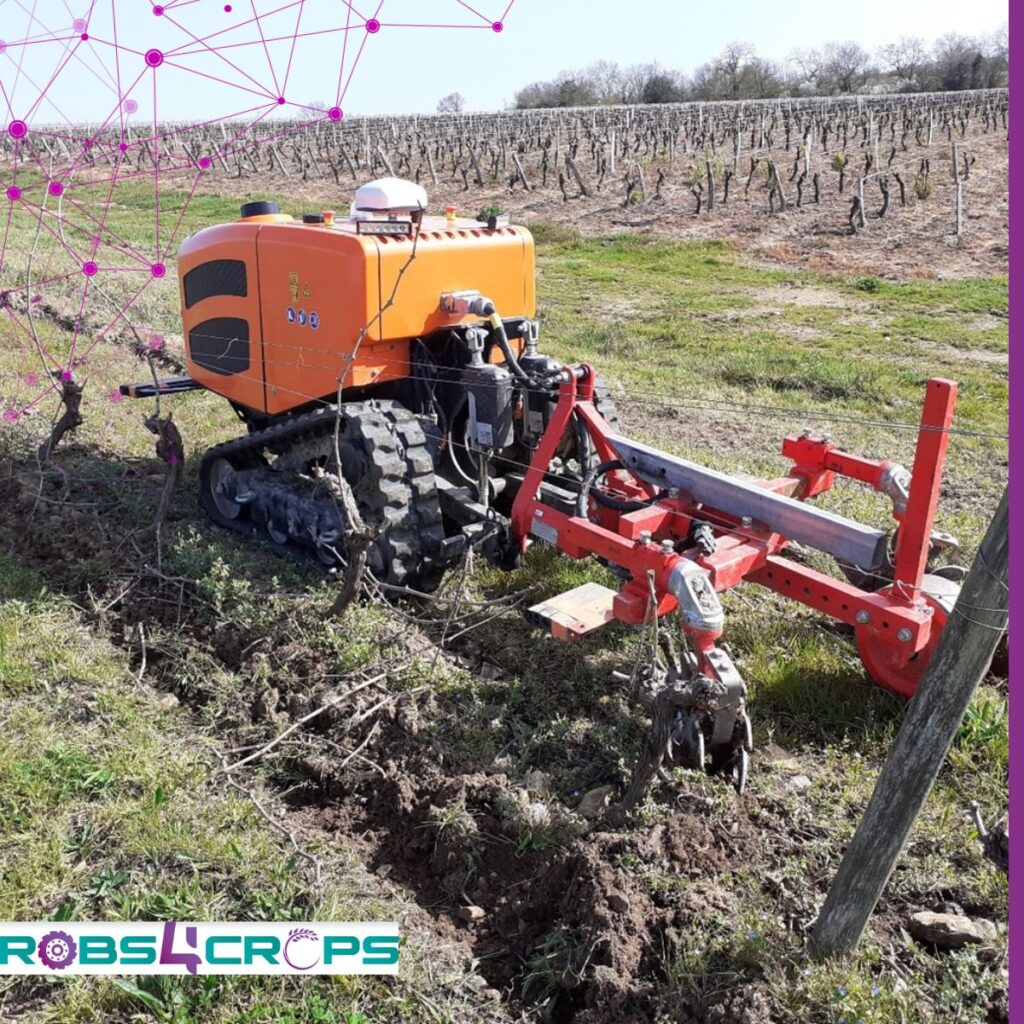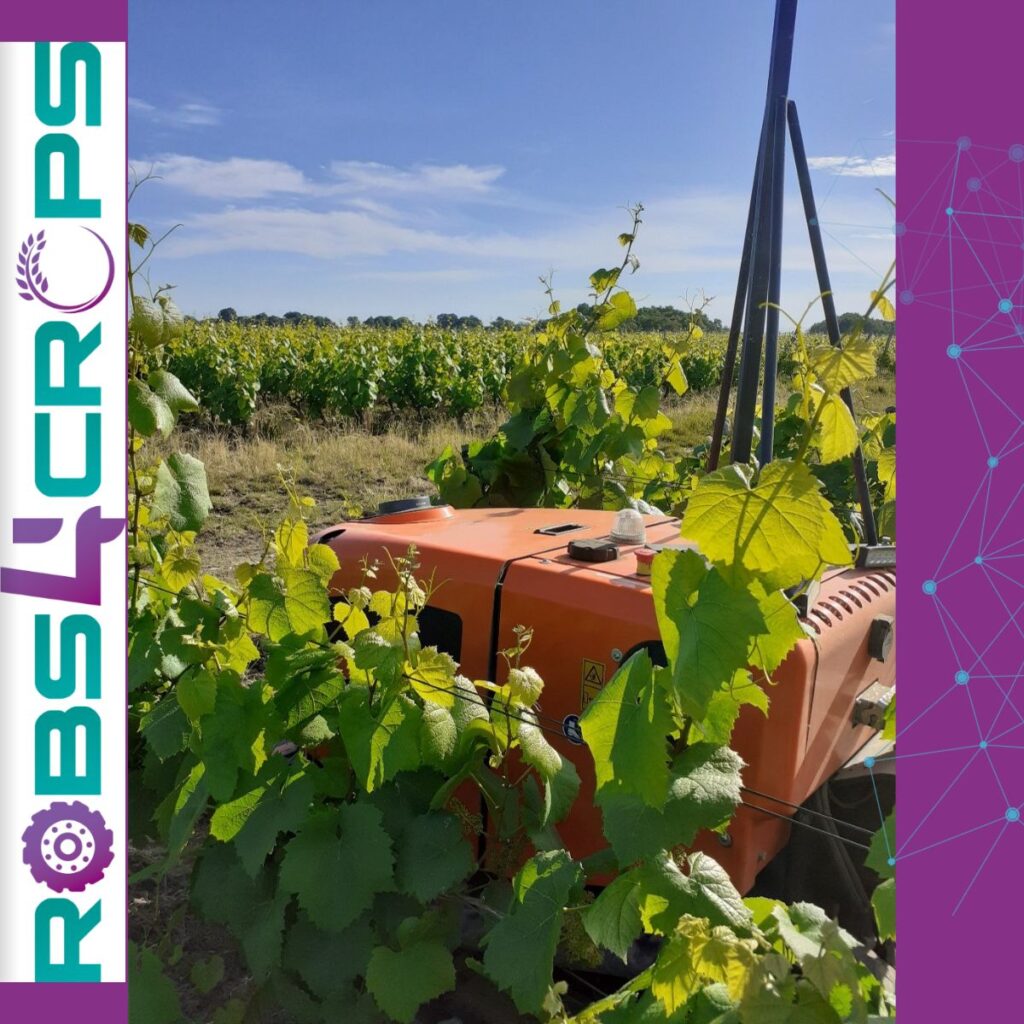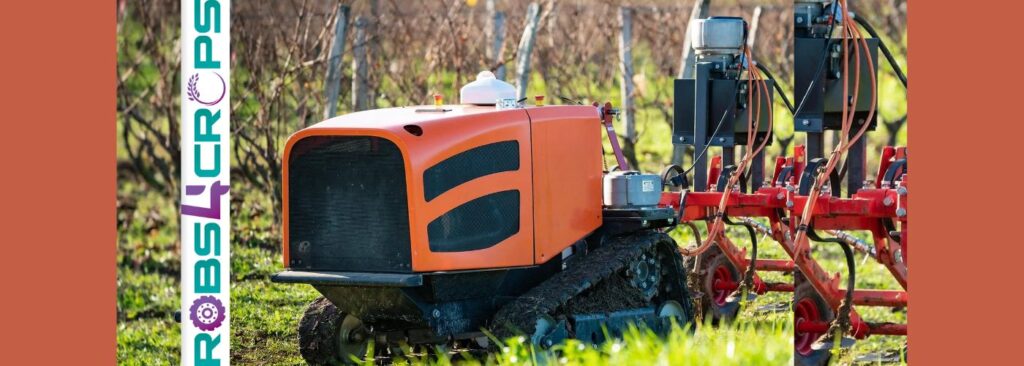For all of our partners involved in the large-scale pilots, the year 2022 has been an interesting time. It is also unquestionably a tremendous illustration of the effort Robs4Crops is making to improve the direction of use of robotics in agriculture.
Wise use of mechanical weeding can provide effective weed control in vegetables, fruits, and field crops, in our case, vineyards. Robs4Crops works on the development of a mechanical weeder that may revolutionise automated weed control in the future.
Efficiency of Mechanical Weeding
In order to reduce chemicals used and labour costs, the French team is using and testing the CEOL robot in vineyards, which is currently used for 3 passes per season.
In 2021, LSP1 has been able to conduct an almost complete cycle of robotized weeding on 2 types of vines. Thanks to motivated farmers, the team has been able to conduct tests on 9 plots in season 2022: 5 with narrow rows and 4 with large rows. On the 6 – 7 passes necessary, the CEOL robot of AGreenCulture had to make 5 passes (all passes after winter) and was able to successfully conduct 4 of them. Only a pass failed when the 2 robots encountered some technical problems and had to go to repairs.


Getting the Hang of Things
In addition to all the mechanical issues that the team in France learned to solve, they made 2 main conclusions:
- Today robots can’t properly work after a pass made by a tractor that created ruts, as they are too deep for the robot to keep its course.
- For the same reason, robots can’t work well in plots with camber.
These results and conclusions are a good steppingstone for the pilot’s future endeavours and a great indicator of a good progress they made since the project started.
The team gathered a lot of data that will be useful for the project and the evolution of the CEOL robot. The French team expects to perform a complete cycle starting before winter in 2022-2023 thanks to this!

